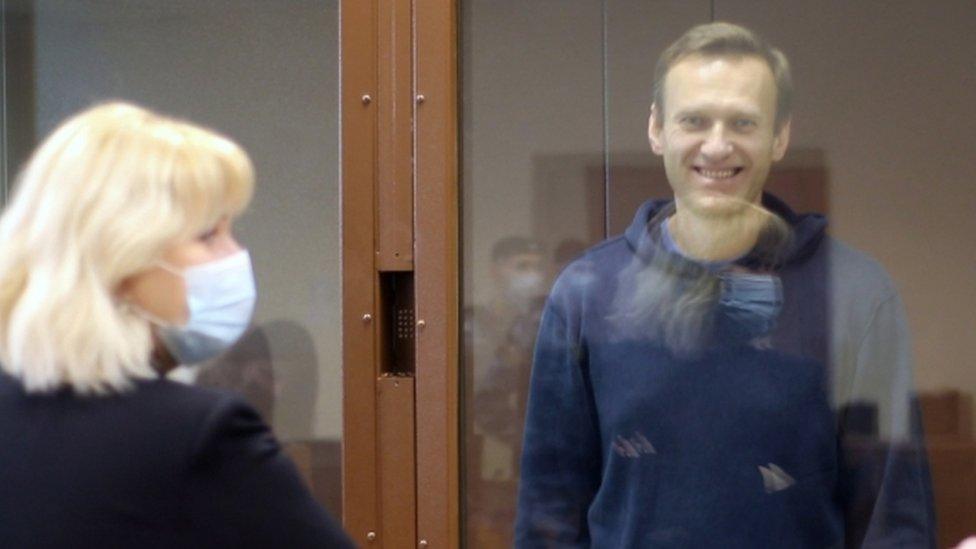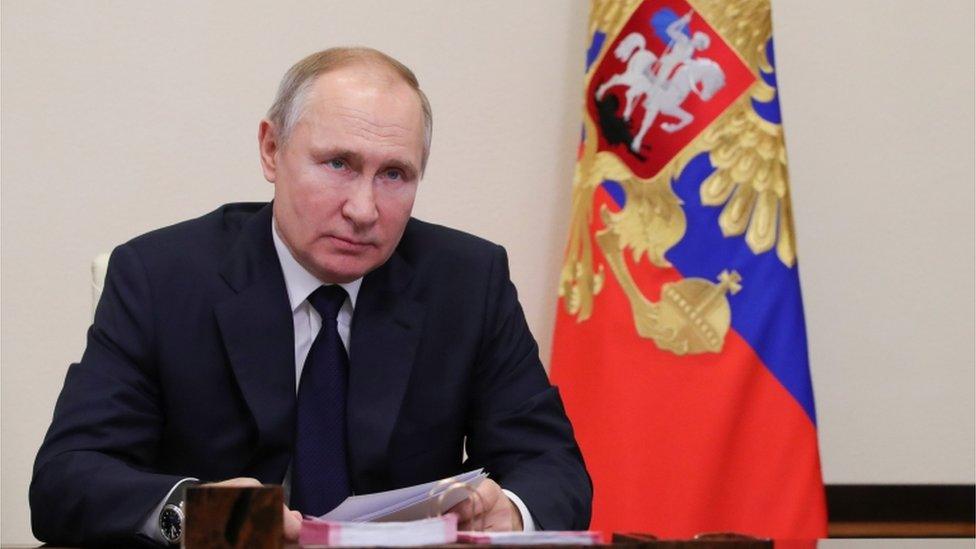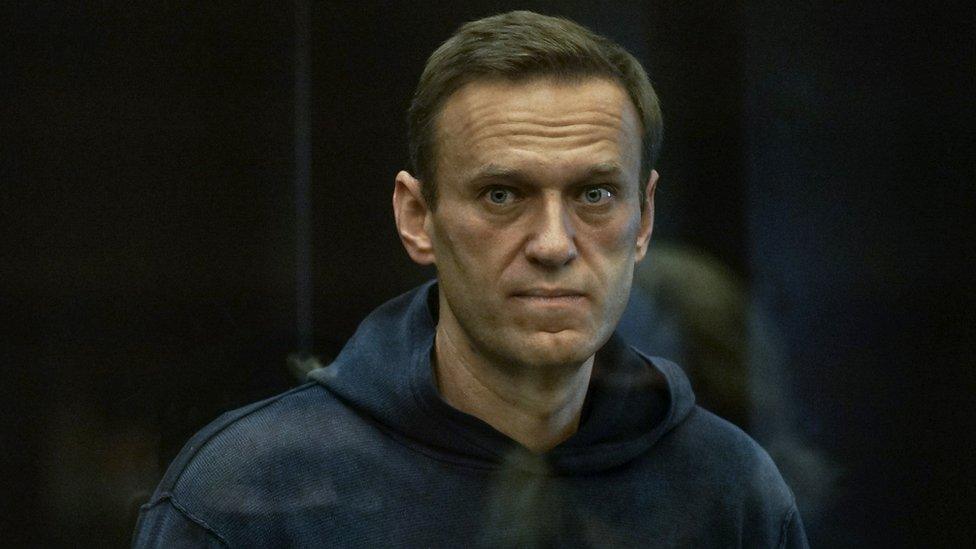Navalny must be freed, European rights court tells Russia
- Published

Navalny has made several appearances in court since his return from Germany last month
Russian opposition figure Alexei Navalny should be released from jail immediately because of the risk to his life, the European Court of Human Rights (ECHR) has ruled.
Navalny was detained on his return to Russia last month following treatment for a nerve agent poisoning in Siberia. He was then given a jail term.
His team said the Strasbourg court's decision was binding.
But Russia condemned the the call for his release as "unlawful".
Navalny, 44, has faced two court cases since his return from Germany. He has denounced them as trumped up by the Kremlin.
His jail term of almost three years has brought thousands of protesters out in dozens of Russian cities. Navalny's allies are seeking to challenge pro-Kremlin parties in parliamentary elections this year and President Vladimir Putin warned on Thursday against foreign interference.

Alexei Navalny is the Russian president most outspoken opponent
"We cannot allow any blows against Russia's sovereignty," he said.
What the rights court says
The ECHR said Navalny's lawyers had applied to the court for an "interim measure" for his release after his detention in January. The court then asked the Russian government what measures were being taken to protect the Kremlin critic while he was in jail and whether his treatment was independently monitored.
When Russia responded saying his cell was under video surveillance, Navalny's lawyers said the government could not give him "sufficient safeguards".
The court said its decision concerned the "nature and extent of risk to the applicant's life", that the risk had been "demonstrated prima facie" and that Navalny should be freed with immediate effect. The measure was taken "without prejudice to the court's decision on the merits of the present case", it added.
The ECHR told the BBC it did not comment on its decisions. However, states that are signatories of the European Convention on Human Rights are obliged to comply with interim measures under the court's rules, so Thursday's ruling immediately raises issues over Russian compliance.
Changes to Russian law passed in December 2020 gave the Russian constitution precedence over the rulings of international bodies as well international treaties where they came into conflict.
Justice Minister Konstantin Chuychenko insisted the court's interim measure did not "contain any reference to any fact or any norm of the law, which would have allowed the court to take this decision".
Marina Litvinenko: "I really believe he is a great politician"
The Navalny case has brought Russia's relations with the European Union to a new low, with the prospect of new EU sanctions. After Russia threw out three European diplomats, the three countries concerned by each expelling a Russian envoy.
Navalny has applied successfully in the past to the Strasbourg court, which is unrelated to the EU. In 2017 the court condemned his conviction for fraud and money-laundering as "arbitrary and unfair" and ordered Russia to pay compensation.
A retrial of that case resulted in the suspended sentence for which he has now been sent to prison for violating its terms while he was recovering from the Siberian attack.
- Published4 February 2021

- Published13 February 2021
